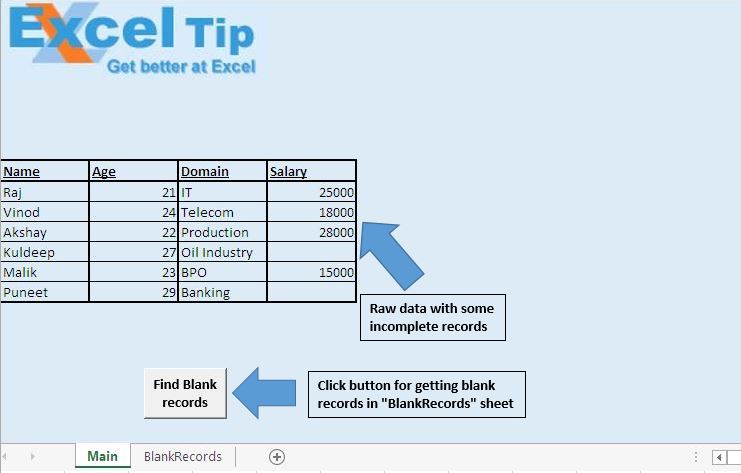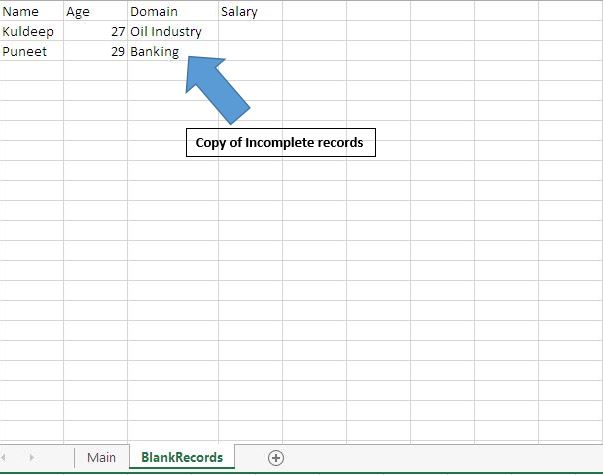Copiar datos incompletos a una nueva hoja usar VBA en Microsoft Excel
En este artículo, crearemos una macro para copiar datos incompletos a una nueva hoja.
Los datos brutos de este artículo consisten en datos salariales, que incluyen algunos registros incompletos.

Queremos copiar los registros de aquellos empleados cuyos detalles salariales faltan. Al hacer clic en el botón, los registros incompletos se moverán a la hoja “BlankRecords”.

Explicación lógica
En este artículo, hemos creado la macro «CopyEmptys» para copiar los registros faltantes en la hoja «BlankRecords». Comprueba la columna Salario en busca de registros en blanco. Si se encuentra un registro en blanco, lo copia en la hoja “BlankRecords”.
Explicación del código
intRowL = Cells (Rows.Count, 1) .End (xlUp) .Row Above code se usa para obtener el número de fila de la última celda.
IsEmpty (Celdas (intRow, 4))
El código anterior se usa para verificar si el salario mencionado está vacío.
Siga el código a continuación
Option Explicit Sub CopyEmptys() 'Declaring variables Dim intRow As Integer, intRowL As Integer, intRowT As Integer 'Getting row number of last cell intRowL = Cells(Rows.Count, 1).End(xlUp).Row 'Looping from 10th row to last cell For intRow = 10 To intRowL 'Checking the fourth column whether it is empty If IsEmpty(Cells(intRow, 4)) Then With Worksheets(2) 'Getting row number of row next to last row intRowT = .Cells(.Rows.Count, 1).End(xlUp).Row + 1 'Inserting data to "BlankRecords" sheet .Range(.Cells(intRowT, 1), .Cells(intRowT, 3)).Value = _ Range(Cells(intRow, 1), Cells(intRow, 3)).Value End With End If Next intRow End Sub
Si te gustó este blog, compártelo con tus amigos en Facebook y Facebook.
Nos encantaría saber de usted, háganos saber cómo podemos mejorar nuestro trabajo y hacerlo mejor para usted. Escríbanos a [email protected]